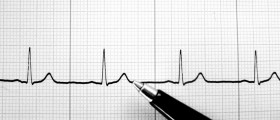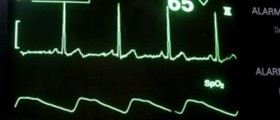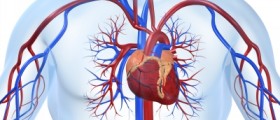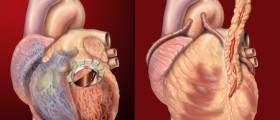
The electrocardiogram (ECG or EKG) is a crucial exam which gives insight in the presences or absence of many different heart conditions. It is an amazing test which can quickly be performed and allow doctors to timely start with the most suitable treatment. One of the most important cases when electrocardiogram may save lives is myocardial ischemia, especially if the condition tends to progress into heart attack.
Electrocardiogram in People Suffering from Myocardial Ischemia
ECG has certain characteristics when people are healthy and there may be some changes in the appearance of electrical activity of the heart once this organ gets affected by different medical conditions.
ECG can reveal all abnormalities regarding heart frequency, arrhythmia and heart attack. It can also point to the presence of some electrolyte imbalance and confirm inflammation of the pericardium.
As far as myocardial ischemia is concerned, ECG shows specific changes of certain waves. ST segment elevation and T wave changes may all point to the presence of myocardial ischemia. Also, there may be specific changes in QRS complex. However, a well experience doctor will differentiate myocardial ischemia from heart attack.
ECG plays crucial role in diagnosing these heart conditions and it allows doctors to immediately start with treatment. The goal of such treatment is to improve blood flow through the heart and prevent damage to the organ. Also, if a person is diagnosed with myocardial ischemic, heart attack can be timely prevented.
The problem is that sometimes ECG changes may be absent and nonspecific even though there is something wrong with the heart function. This is the reason why ECG alone is not the only tool for diagnosing myocardial ischemia and heart attack. Doctors also use other clinical and laboratory tests to establish the correct diagnosis.
The Most Suitable Approach
Morbidity and mortality associated with heart attack can be reduced if one recognizes symptoms and signs of the condition timely. Also, by calling emergency medical service one can be sure that these professionals will act according to progression of heart attack. If there is cardiac arrest, they will perform defibrillation and save a patient's life. These professionals will additionally initiate treatment even before the person reaches the hospital.
Once patients are hospitalized, they may receive all the help they need. Some are treated conservatively while others need to undergo more invasive treatments and sometimes even surgery. The outcome of heart attack depends on the size of the blocked blood vessel, the time the condition is diagnosed and the time when treatment is initiated. So, with the assistance of ECG the condition can be quickly diagnosed and with timely treatment patients may be saved from sometimes inevitable lethal outcome.

















Your thoughts on this
Loading...